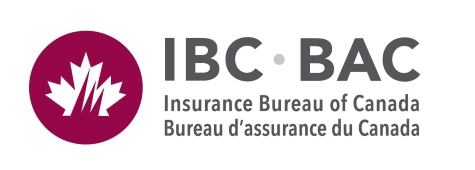Take safety steps ahead of Atlantic Canada storm
HALIFAX, March 25, 2014 /CNW/ - Insurance Bureau of Canada (IBC) urges Atlantic Canadians to prepare for the major storm bearing down on the region. Heavy snow (as much as 40 centimetres) turning to rain combined with high winds are expected to move across the region.
It is forecast that high tides are expected at the height of the storms and with strong winds the combination make it potentially a perfect storm scenario that could result in flooding in low lying areas that may see combined rain which could result in sewer backups.
Take steps to keep everyone safe
"Assemble a safety kit that will get you and your family through the first 72 hours," says Amanda Dean, IBC's Vice-President, Atlantic. "First responders can take that long to reach everyone after a severe weather event," she says.
Dean also urges residents to take extra care to stay safe in power outages. "Avoid fires by being extremely careful in using candles. Avoid carbon monoxide poisoning by using only heaters approved for indoor use," she says.
Here's what Public Safety Canada recommends for your safety kit:
- Water – 2 litres of water per person per day (small bottles are easier to carry in case of an evacuation order)
- Non-perishable food including canned food and energy bars, and a manual can opener
- Flashlight and batteries, battery-powered or wind-up radio and extra batteries
- First aid kit
- Special needs items such as prescription medications, infant formula and equipment for people with disabilities (check expiry dates for any items previously packed)
- Extra keys for your car and house
- Cash including smaller bills and change for pay phones
- In-town and out-of-town contacts
Take steps to protect your property
- Keep your sidewalk and front steps clear of snow and ice to prevent falls.
- Clear snow and ice from gas or propane meters, exhaust vents and basement windows. Water frozen in pipes can cause your pipes to break at their weakest point. To prevent freezing, fit exposed pipes with insulation sleeves or wrapping.
- Clear all snow and ice from your vehicle before driving – and only drive if necessary.
Are you covered?
"If you do sustain property damage, report it as soon as possible to your insurance agent, broker and company," says Dean. Here's what is generally covered:
- Damage to homes caused by snow, rain or wind is generally covered. This includes damage caused by flying debris or falling branches or trees, or damage to your home and its contents when water or snow enters through openings caused by high winds.
- Damage to mobile homes or trailers may be covered from wind damage, but policy wordings vary, so it's best to check with your insurance representative.
- Damage to cars from ice, wind or water is typically covered if you have comprehensive or all-perils car insurance. This coverage isn't mandatory so check your policy.
- In certain circumstances, homeowners who are unable to live in their homes because of insurable damage are entitled to additional living expenses. Ask your insurance representative for more information.
- Food spoilage in freezers resulting from the interruption of an electrical current from an external source is normally covered by home insurance policies.
All claims will be subject to the deductible stated in the policy.
Starting the process
Most insurers have 24-hour claims service. Be as detailed as possible when providing information. If you need help getting in touch with your insurer, contact IBC's Consumer Information Centre at 1-800-565-7189. Ext: 228.
About Insurance Bureau of Canada
Insurance Bureau of Canada (IBC) is pleased to celebrate 50 years as a valuable resource for insurance information. Since 1964, IBC has been working with governments across Canada to make our communities safer, championing issues that directly affect Canadians and the property and casualty (P&C) insurance industry. IBC is the national industry association representing Canada's private home, car and business insurers. Its member companies represent 90% of the P&C insurance market in Canada. The P&C insurance industry employs over 118,600 Canadians, pays more than $7 billion in taxes and levies to the federal, provincial and municipal governments, and has a total premium base of $46 billion.
To view media releases and other information, visit the media section of IBC's website at www.ibc.ca. Follow IBC on Twitter @InsuranceBureau or like us on Facebook.
SOURCE: Insurance Bureau of Canada

If you require more information, IBC spokespeople are available to discuss the details in this media release. To schedule an interview, please contact: Steve Kee, Director, Media & Digital Communications, 416-362-2031 X-4387, [email protected]

Share this article